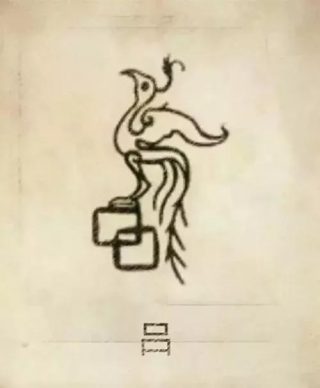The Lü surname (lǚ) is one of the most ancient and culturally significant surnames in China. Its origins are deeply rooted in Chinese mythology, historical events, and ethnic integration, making it a fascinating subject for anyone interested in Chinese history and culture. This article explores the origins, historical figures, cultural significance, and societal impact of the Lü surname, offering a glimpse into its enduring legacy.

Ⅰ、Origins of the Lü Surname: A Tapestry of Cultural Fusion
The Lü surname has a rich and diverse origin, blending legend, history, and cultural evolution:
1.The Jiang Clan: From Mythical Ancestors to Ancient Kingdoms
The primary lineage of the Lü surname traces back to Boyi, a descendant of the legendary Emperor Yan (Shennong). Boyi was granted the territory of Lü (modern-day Nanyang, Henan) for his contributions to flood control during the reign of Emperor Shun. His descendants established the Lü State during the Xia Dynasty, and the surname Lü was derived from this kingdom.
During the Shang and Zhou Dynasties, Lü Shang (Jiang Ziya), a descendant of the Lü State, played a pivotal role in overthrowing the Shang Dynasty and establishing the Zhou Dynasty. He was enfeoffed in the Qi State, and his descendants spread across China, further expanding the Lü surname.
The Ji Clan: A Noble Branch from the Jin State
During the Spring and Autumn Period, a branch of the Lü surname originated from the Jin State. A noble named Wei Chou was granted the territory of Lü (modern-day Huozhou, Shanxi), and his descendants adopted Lü as their surname.
2.Ethnic Integration: A Symbol of Cultural Unity
The Lü surname also reflects China's history of ethnic diversity. During the Northern Wei Dynasty, the Xianbei tribes adopted the Lü surname as part of the Sinicization reforms. Later, Manchu, Li, and Tujia minorities also adopted the Lü surname, showcasing the inclusive nature of Chinese civilization.
Ⅱ、Historical Figures: A Constellation of Legends
The Lü surname has been associated with numerous influential figures across Chinese history, spanning politics, philosophy, arts, and science:
1.Political and Military Legends
Lü Shang (Jiang Ziya): A key figure in the founding of the Zhou Dynasty, Lü Shang is revered as the "Grand Master of a Hundred Schools" for his military and political wisdom.
Lü Buwei: A prominent statesman during the Warring States Period, Lü Buwei sponsored the compilation of Lüshi Chunqiu (The Annals of Lü Buwei), a foundational text of Chinese philosophy.
Lü Zhi: The first empress of the Han Dynasty, Lü Zhi played a crucial role in stabilizing the early Han government through her political acumen.
2.Cultural and Philosophical Icons
Lü Dongbin: A Tang Dynasty Taoist master and one of the "Eight Immortals," Lü Dongbin's legends blend Taoist philosophy with folk beliefs, making him a cultural symbol.
Lü Zuqian: A Southern Song Dynasty Confucian scholar, Lü Zuqian co-founded the "Jinhua School" of Neo-Confucianism, emphasizing practical learning.
Lü Shuxiang: A modern linguist known as the "People's Linguist," Lü Shuxiang's Modern Chinese Dictionary standardized the use of modern Chinese.
3.Heroes and Artists
Lü Bu: A legendary general during the Three Kingdoms period, Lü Bu is celebrated for his martial prowess and remains a symbol of bravery.
Lü Jihong: A contemporary tenor, Lü Jihong's performances of songs like Roots of Ten Thousand Surnames promote Chinese cultural heritage.
Ⅲ、Cultural Significance: Family Values and Traditions
The Lü surname is deeply rooted in Chinese cultural practices, from family ethics to architectural heritage:
1.Family Teachings and Ethical Codes
The Lü family's ancestral teachings emphasize values such as filial piety, loyalty, and diligence. For example, the Lü Family Instructions from the Southern Song Dynasty stress the importance of "sharing good deeds and correcting mistakes," reflecting Confucian ideals.
2.Architectural Heritage
Lüliang Ancient Village (Shanxi): This village preserves Yuan Dynasty opera stages and Ming-Qing residences, with intricate brick carvings symbolizing family prosperity.
3.Lü Ancestral Halls: These halls serve as repositories of family history and cultural memory, showcasing the Lü surname's enduring legacy.
4.Festivals and Intangible Heritage
The "Big Sword Lantern Festival" in Hubei commemorates Lü Shang with a spectacular dance featuring a 10-meter-long sword, symbolizing strength and unity.
Ⅳ、Societal Impact: From Ancient Migrations to Modern Contributions
The Lü surname has left an indelible mark on Chinese society, shaping its cultural and historical landscape:
1.Migration and Globalization
From the fall of the Lü State to the Ming and Qing Dynasties, Lü descendants migrated across China and beyond, settling in regions such as Taiwan and Southeast Asia. Today, the Lü surname is a vital part of the global Chinese diaspora.
2.Economic and Political Contributions
During the Han Dynasty, the Lü family monopolized the salt industry, driving early economic development.
Modern figures like Lü Kecheng, a materials scientist, have advanced nanotechnology, showcasing the Lü surname's transition from traditional elites to modern innovators.
3.Cultural and Artistic Achievements
Lü Sicheng: A renowned violinist, Lü Sicheng's international performances of The Butterfly Lovers bridge Chinese culture and global art.
Conclusion: A Living Legacy
The Lü surname is more than a family name—it is a microcosm of Chinese civilization, embodying values of wisdom, resilience, and cultural diversity. From the ancient sage Lü Shang to the modern achievements of Lü Sicheng, the Lü legacy reminds us that while individuals may fade, the spirit of a culture endures. For those interested in Chinese history, the story of the Lü surname offers a unique window into the heart of China's past and present.